Gezellig opened in the June 2019, located in the rather grand stone building that formerly housed the Holborn Town Hall and Library. Graham Long is the head chef. He was formerly head chef at l’Autre Pied and before that trained with Gordon Ramsay as well as with Shane Osborn in Hong Kong at the interesting but slightly peculiar restaurant St Betty. Sommelier and co-founder Wieteke Teppema is, despite her perfect English accent, actually Dutch. This explains the name of the restaurant, “gezellig” being a Dutch word that defies precise translation but roughly means “cosy”. The front of house manager and final co-founder is James Comyn, who has worked at a number of restaurants and also at the excellent wine merchant Howard Ripley, one of the few places in London with a good selection of German wines. The room has a high ceiling and has a bar upstairs overlooking the dining room, as well as a pair of private dining rooms.
The wine list had 226 different labels and ranged in price from £25 to £620, with a median price of £69. The average mark-up was just 2.5 times retail price, which is very fair indeed by the rapacious standards of London. Labels included Vincent Careme Vouvray Spring 2017 at £38 for a bottle that you can find in the high street for £17, Boekenhoutskloof Semillon 2010 at £64 compared to its retail price of £44, and Liquid Farm White Hill Chardonnay 2015 at £88 for a wine that will set you back £42 in a shop. For those with the means, there were grander offerings such as Tenuta San Guido Sassicaia 2010 at £320 compared to its retail price of £247, and Penfolds Grange 1996 at £522 for a wine whose current market value is £474. This was one of the more appealing wine lists I have seen in the capital for quite some time.
The menu was a la carte, with starters £13-£15 and mains mostly in the range £22-£29; there was also a full vegetarian menu available. Sourdough bread was baked from scratch in the kitchen and served warm. This had lovely texture and a good crust (15/20). Nibbles of suckling pig croquette were topped with a sweet Dijon mustard sauce and were excellent, with plenty of pork taste coming through and a pleasing flavour note from the mild mustard (15/20). This was a version of a Dutch snack called “bitterballen”, but in all the considerable time I spent in the Netherlands I never had one that tasted this good.
My starter was sautéed spaetzle (egg noodle dumplings) with hen of the wood mushrooms, peas and ewes curd. This worked well, a summery dish with good late English peas from the north of England. The mushroom and ewes curd worked nicely together and the dumplings were surprisingly delicate (14/20). I also tasted mackerel with white beetroot and bone marrow, beef fat that was also most enjoyable, the beetroot cutting through the richness of the fat and the natural oiliness of the fish.
Suckling pig used much of the animal, which arrived in assorted forms, including loin, the belly with crackling and a sausage, as well as guanciale (cured cheek). On the side was a dressed green salad, broccoli, coca beans and mustard and a pork jus. The pig itself was a Middle White breed from Richard Vaughan at Huntsham Farm in the Wye Valley. On the plate was pan-roasted pork rack, while the leg meat was seam-butchered into individual muscles and then cooked gently in butter coated in a parsley breadcrumb. Pork sausage was made by the farmer, and the pork belly was slow cooked and pressed and then the crackling crisped up. Finally the heads and shoulders of the animal were combined with pork jus and lardo. This was a hearty and enjoyable dish, the various elements carefully cooked, the sausage in particular having lovely flavour, while there was balance provided by the delicately cooked broccoli and the salad (15/20).
For dessert, Peach Melba is a dish with some history. It was invented in the last decade of the 19th century by the legendary chef Auguste Escoffier, a dish that he named after the prominent Australian soprano Nellie Melba, who was living in London at the time and was a guest at The Savoy hotel, where Escoffier was chef. The singer had sent Escoffier tickets to her performance of Wagner’s Lohengrin, where the set featured a swan-shaped boat. The following day Escoffier served her peaches and vanilla ice cream perched on a carved ice swan. Later when Escoffier opened the restaurant at the new Ritz hotel, he added a raspberry puree and named the dish “Peach Melba”. The version here was an interpretation of the original rather than sticking to the classical recipe. There was a base of vanilla custard, peaches roasted in Sauternes wine, brown butter almond cake, crystallised almond nibs and frozen raspberries that break into little berries. The dish was finished with peach and raspberry ripple sorbet and almond milk. The almond cake gave an interesting additional texture, the peaches were ripe and the flavour combination was effective. This was an interesting and successful take on a classic dish (15/20).
Coffee was supplied by Climpson in Spitalfields, one of London’s better coffee roasters. Some canelés that I had with the coffee were very good, with soft custard centres and a caramelised crust that was less stodgy than many versions that I have tried. Service was excellent. The bill came to £61 per person with just water to drink. If you had three courses and coffee and shared a modest bottle of wine then a typical cost per person might come to around £75 or so. I really enjoyed my meal at Gezellig, which had carefully prepared, attractive dishes and had the bonus of an unusually good wine list. The atmosphere is welcoming and relaxed and, well, rather cosy, so lives up to the name of the restaurant.



















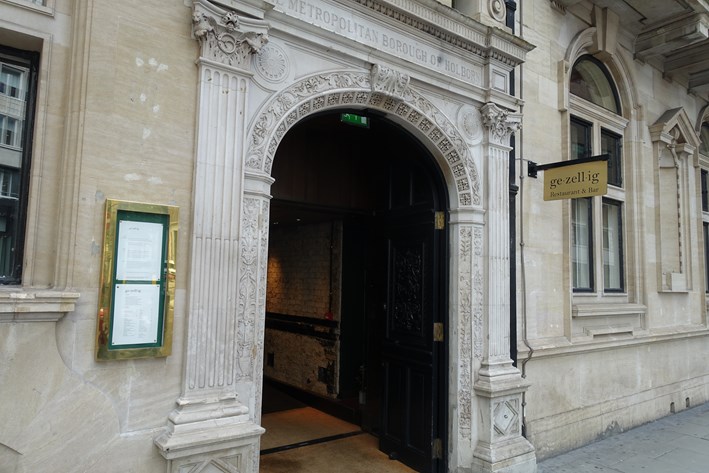
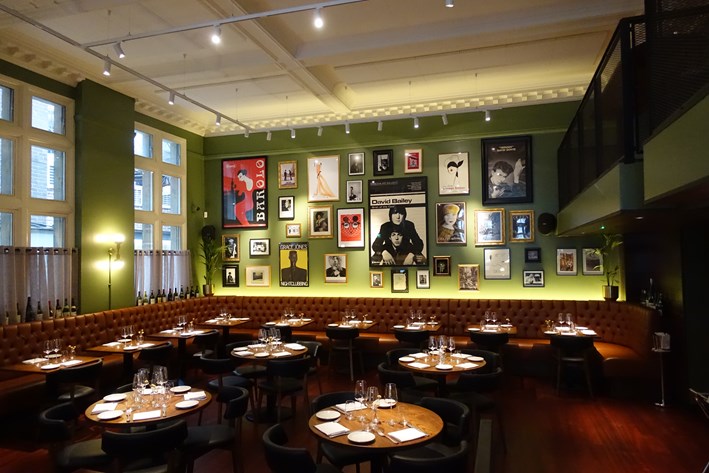
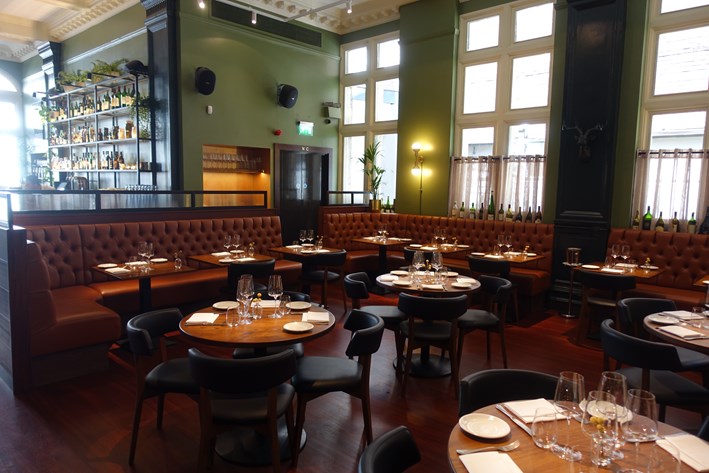
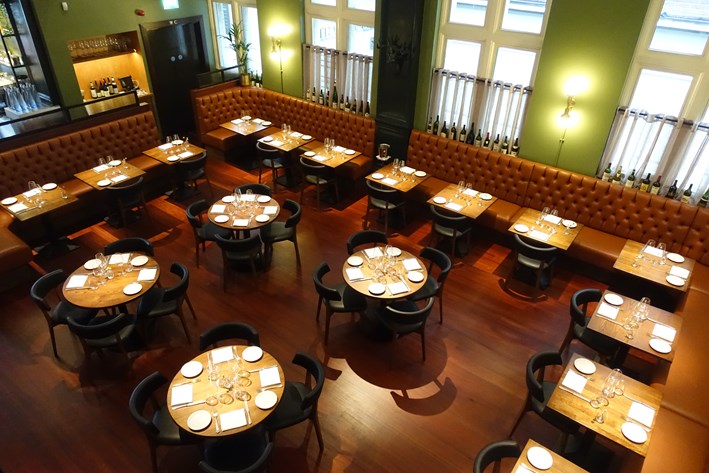
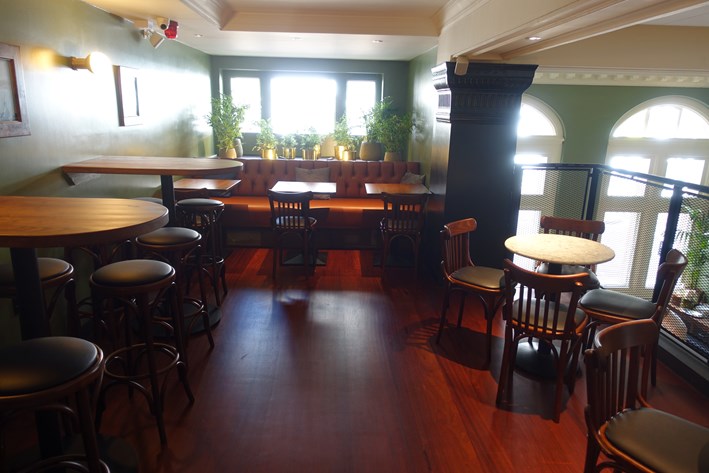
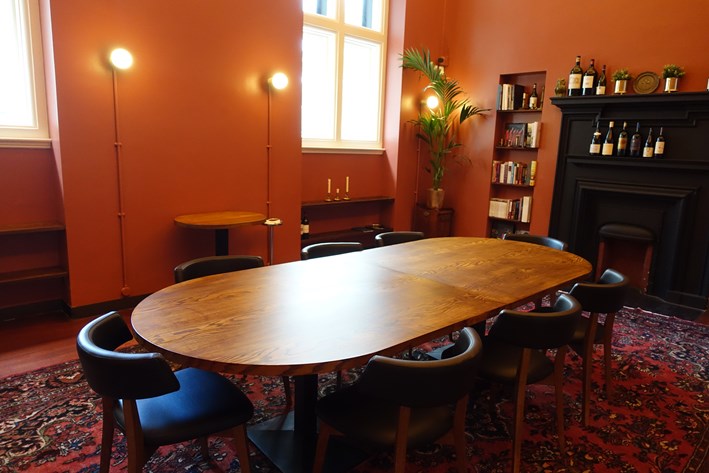
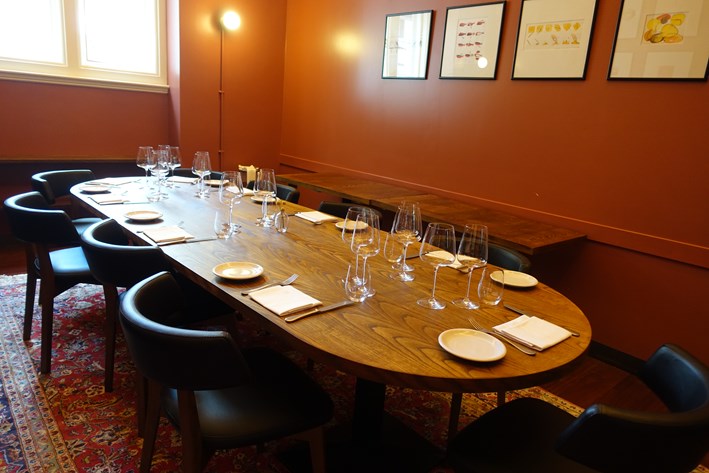
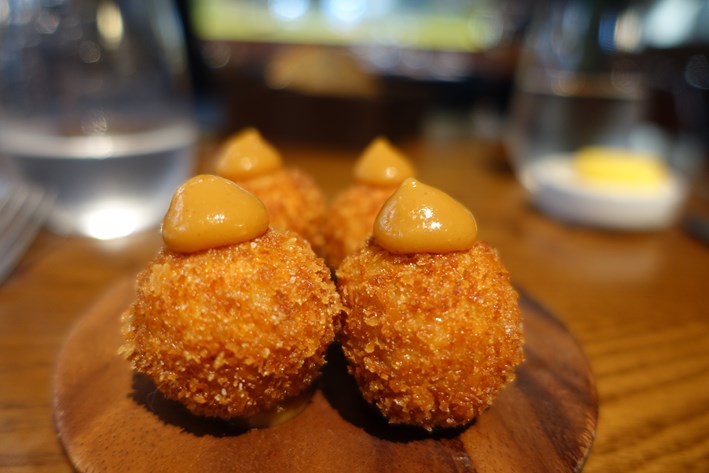
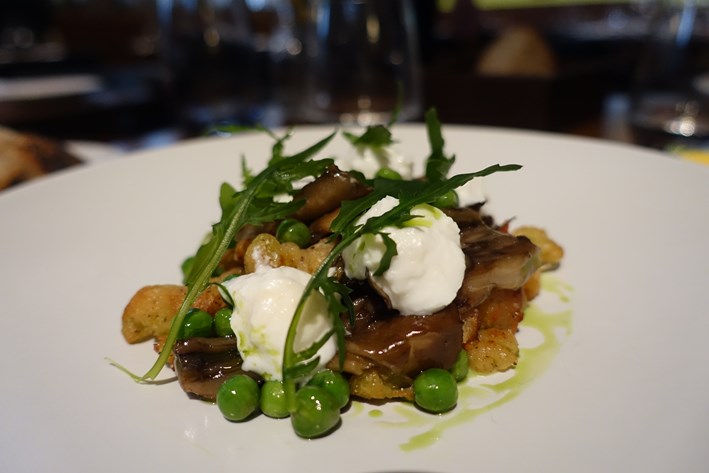
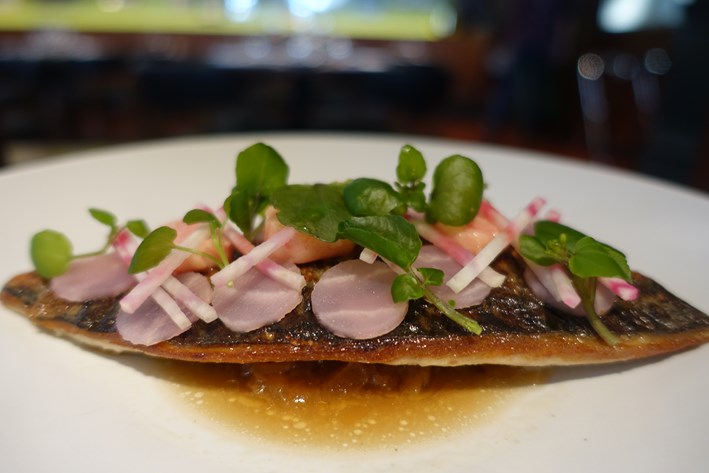
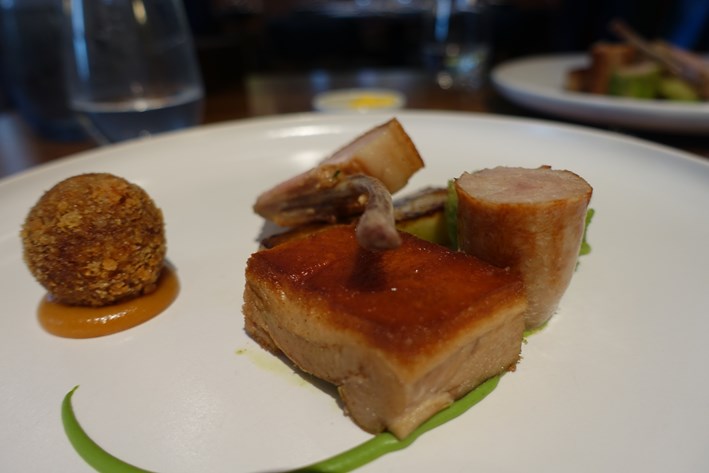
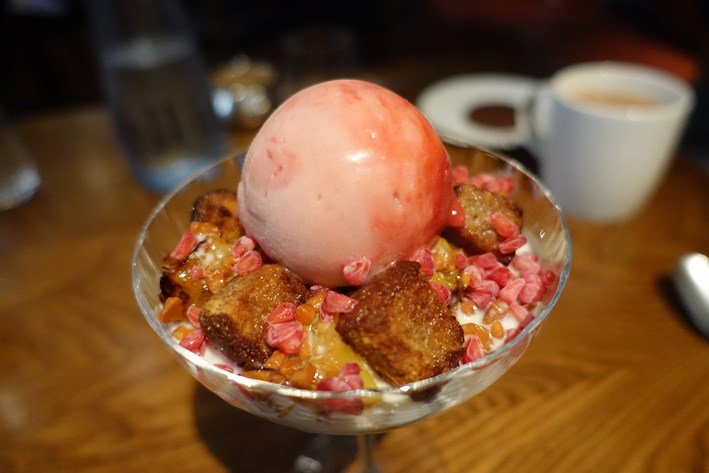
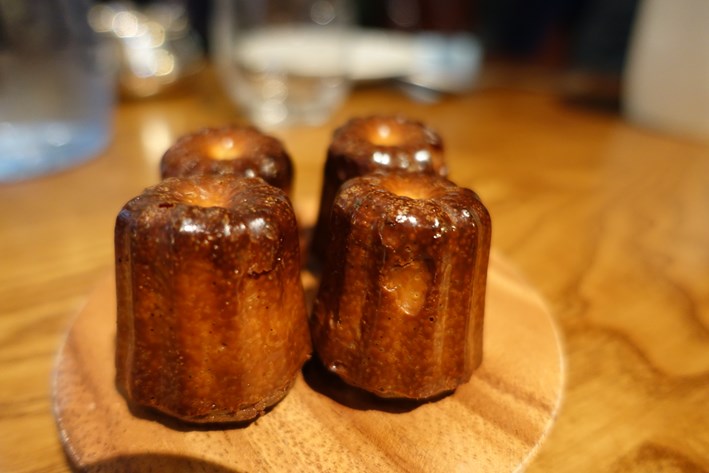
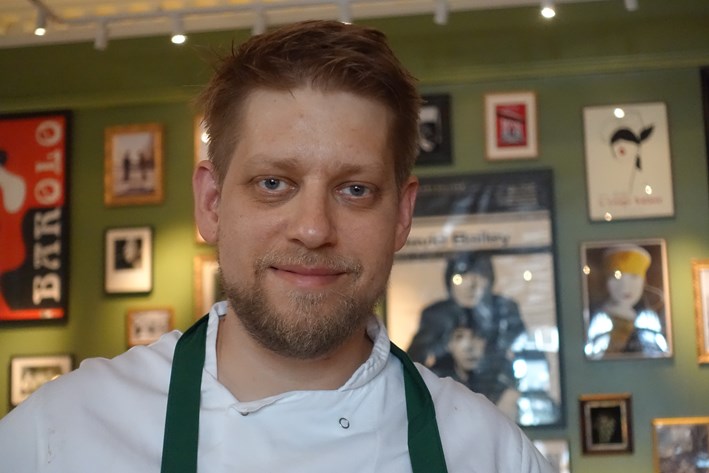

Shane Gordon
Had dinner at Gezellig on Saturday. Super welcome, lovely food and great wine list with lovely wine by the glass choice. Good value and worth a visit.